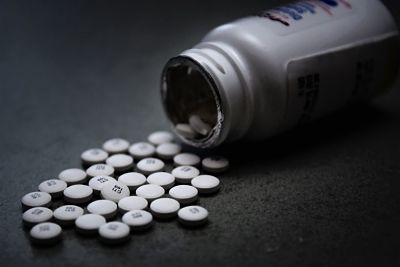 Four drug companies have reached a settlement worth $260 million just hours before the first trial for a federal opioid lawsuit was set to begin.
Four drug companies have reached a settlement worth $260 million just hours before the first trial for a federal opioid lawsuit was set to begin.
Opioid Lawsuit Settled Hours Before Trial
The four defendants settling the case were McKesson Corp., Cardinal Health Inc., AmerisourceBergen Corp., and Teva Pharmaceutical Industries Ltd. They reached a settlement between midnight and 1:00 am on October 21, 2019 with the plaintiffs, Summit and Cuyahoga Counties in Ohio. U.S. District Court Judge Dan Polster dismissed the case with prejudice.
McKesson, Cardinal Health, and AmerisourceBergen agreed to pay out a combined total of $215 million immediately, while Teva will pay $20 million. Additionally, Teva will be donating $25 million worth of Suboxone, a medication used in the treatment of opiate dependence.
The defendants were scheduled to appear in a Cleveland courtroom that morning in the first federal multidistrict litigation (MDL) trial involving the opioid epidemic. The plaintiffs in this MDL case were the first among more than 2,700 federal plaintiff communities to head to trial.
AmerisourceBergen, Cardinal Health, and McKesson issued a joint statement asserting that the settlement in the opioid lawsuit does not mean they are at fault for the injuries inflicted by the opioid crisis.
“While the companies strongly dispute the allegations made by the two counties, they believe settling the bellwether trial is an important stepping stone to achieving a global resolution and delivering meaningful relief,” the joint statement read. It added that “The companies expect settlement funds to be used in support of initiatives to combat the opioid epidemic, including treatment, rehabilitation, mental health, and other important efforts. The distributors remain deeply concerned about the impact the opioid epidemic is having on families and communities across the nation and are committed to being part of the solution.”
Two Other Defendants Not Part of Settlement
Two other defendants were also involved in this opioid lawsuit – pharmaceutical company Henry Schein Medical and the pharmacy chain Walgreens.
Walgreens was not part of the settlement, and Judge Polster announced that claims against the company have been cut off and moved to a different track. Henry Schein Medical will be making a donation of $1 million to establish an educational foundation with Summit County. It will also pay $250,000.00 of the county’s expenses. A spokesperson for Henry Schein said that the plaintiffs have “agreed to dismiss the company.”
Summit County and Cuyahoga County have both announced plans for how the settlement awards will be allocated.
“We are looking at using this money for treatment and getting people into programs and helping first responders as they deal with this crisis,” said Cuyahoga County Prosecutor Michael O’Malley.
Attorneys for the plaintiffs said more work has to be done to fight the opioid epidemic.
“The proposed settlement will make significant progress to abate the epidemic by providing resources for and applying funds directly to necessary opioid-recovery programs,” read a joint statement from attorneys Paul J. Hanly Jr., Paul T. Farrell Jr., and Joe Rice. “Throughout this process, Summit and Cuyahoga Counties have tirelessly investigated, litigated, and prepared for the bellwether trial that would have begun today if not for this agreement. In doing so, the communities revealed facts about the roles of the opioid industry that created and fueled the opioid epidemic.”
Soaring Numbers in Opioid Epidemic
The national opioid epidemic has been devastating for public health. As prescriptions for powerful opioid painkillers such as OxyContin, Fentanyl, and Hydrocodone have quadrupled over the past twenty-five years, the number of Americans addicted to these drugs has reached epidemic proportions.
The rise in opioid addiction has led to a rise in overdose deaths. In 2016, there were 71,614 fatal overdoses in the United States. Over 74 percent of those involved natural or synthetic opioids, heroin, or methadone. More than 130 people in the United States die every day after overdosing on opioids.
Because of the scope of the problem, the Food and Drug Administration has declared opioid addiction a “public health crisis” and has begun implementing class-wide safety labeling changes for opioid pain medications, including boxed warnings about the “serious risks of misuse, abuse, addiction, overdose, and death.”
<< BACK TO BLOG POSTS